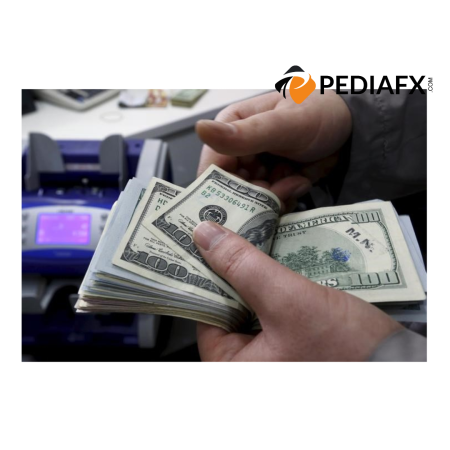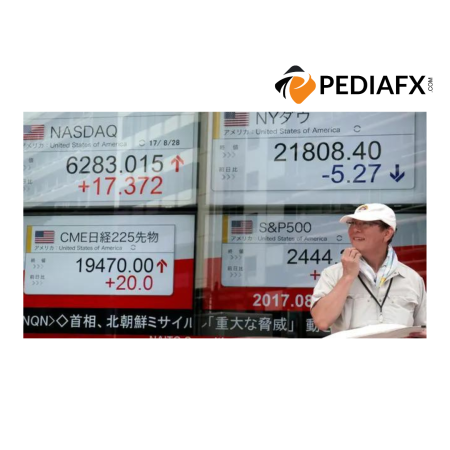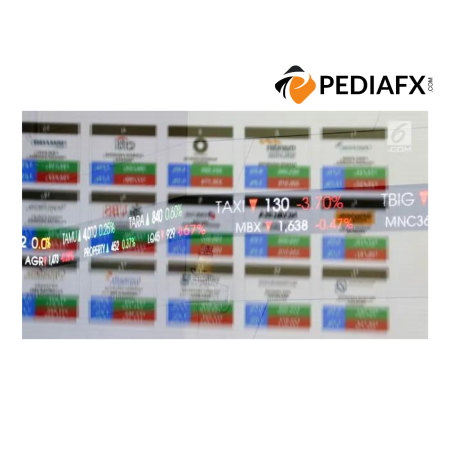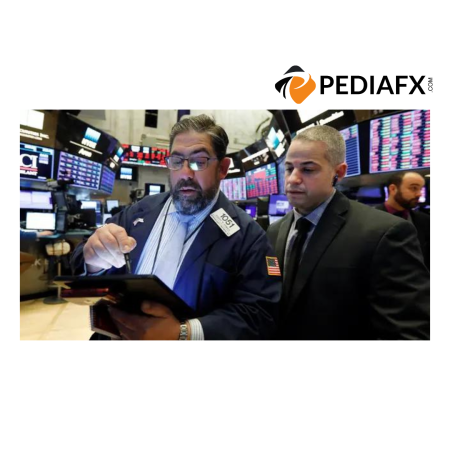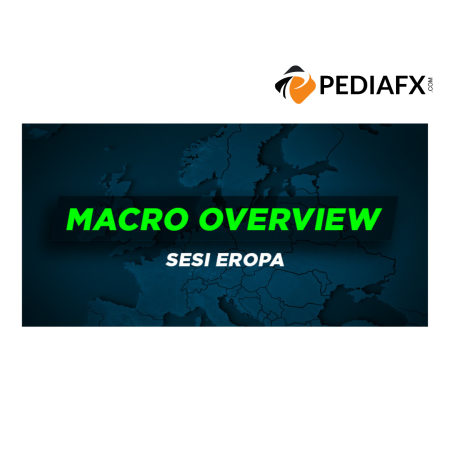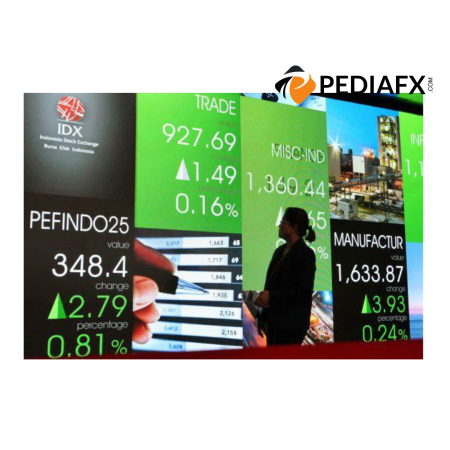Pediafx – The types of forex brokers can be differentiated based on the system (Dealing Desk/Non-Dealing Desk/Hybrid) as well as regulatory status (regulated/unregulated).
PediaFX – Basically, there are two types of forex brokers: brokers with a Dealing Desk (DD), No Dealing Desk (NDD), and Hybrid. DD brokers are sometimes also called Market Makers or, in Indonesian jargon, Broker Bandar. On the other hand, NDD brokers can be further divided into Straight Through Processing (STP) brokers, Electronic Communication Network (ECN) brokers, and STP/ECN hybrids. There are also types of forex brokers based on their legal status, which can be categorized into regulated brokers and unregulated brokers.
Types of Forex Brokers: DD, NDD, and Hybrid
- Dealing Desk (DD) Broker
DD brokers make profits through spreads. DD brokers can be considered market makers and create their own artificial market and exchange rates for clients. While it may sound like there is some manipulation involved, that is not the case. They still offer both sell and buy options and do not care which one the trader chooses. However, if you are trading with a Dealing Desk broker, make sure you are dealing with a registered (regulated) Dealing Desk broker as a brokerage company with a good reputation. Examples of good regulation include NFA/CFTC in the United States, FCA in the United Kingdom, and ASIC in Australia. Dealing Desk brokers are often referred to as dealers. The advantages of DD brokers are usually reflected in the facilities they offer, such as high leverage up to 1:1000, no interest charges, small spreads (sometimes fixed spreads), attractive bonuses, and easy deposit and withdrawal options through third parties. However, the downside is that since these brokers are market makers, traders do not see the actual interbank exchange rates. Additionally, both large and small dealers often take positions opposite to the trader. For example, if you open a 1 standard lot buy position on EUR/USD, the DD broker will first try to find a matching sell order of the same pair and size from another trader. This minimizes their risk. However, if there are no matching orders, they will take a position opposite to yours. Each forex broker may have different risk management policies, so even if you know a broker is a DD broker, you can ask the broker directly about their approach.
There are two types of Dealer Brokers:
a) Large Dealers
These brokers usually have a good reputation, are legally registered (regulated), and are not located in remote or unclear locations. Similar to playing at a casino, it is advisable to look for large casinos like those in Macau or Las Vegas. This way, if you make a profit, you can be sure that the broker will pay your winnings, and your invested funds will remain safe. Regulated DD brokers are supervised by a governing body (usually from the local government) that aims to control and ensure that the broker performs its duties properly and does not deceive customers.
b) Small Dealers or Unregulated Brokers (Bucket Shops or street-side brokers)
These brokers are ones you should avoid as they have a high potential for manipulating transactions or engaging in fraudulent activities, resulting in unnecessary losses. Generally, Bucket Shop brokers do not have the proper licenses, and their licenses are typically issued as regular or other types of companies (not as brokerage firms). This often misleads inexperienced potential customers.
Characteristics of Bucket Shop Brokers:
- Located in unclear places or only hold licenses from offshore jurisdictions that are unclear.
- Most of them allow money transfers with third parties or individuals. Registration is very easy and seems careless, without adequate verification.
- Some bucket shop brokers impose restrictions or prohibit certain trading techniques (such as scalping, martingale, etc.). However, there are also Bucket Shops that allow all trading techniques because their systems have automated scripts that can hinder those techniques (usually called Virtual Dealer scripts).
- The conditions offered by Bucket Shop brokers often deviate from the normal conditions of the actual market, such as excessively high leverage (e.g., 1:1000) or unrealistically low spreads (e.g., 1 pip fixed or even 0 pip fixed, while in the real market, spreads are constantly changing every second).
- They offer large bonuses to attract customers to deposit funds (which ultimately get “eaten” by these fraudulent dealers). Be cautious of brokers that offer overly bombastic things or bonuses that seem very attractive because the bigger the bonus, the more carefully you should consider it. Instead of getting trapped and experiencing disproportionate losses compared to the offered bonus, it’s better to be cautious.
The cheating practices commonly carried out by Bucket Shop brokers are as follows:
- Excessive requotes: Requotes occur when you want to execute a transaction at a specific price, but the platform proposes a different price option.
- Slow order execution: If your trade reaches the target profit (TP), it becomes difficult to execute, but if it reaches the stop loss (SL), it gets executed easily.
- Frequent server downtime: When the server experiences issues, you cannot engage in trading. You may even be unable to close your open trading positions.
- Manipulation of price quotes.
- Reluctance to acknowledge profitable transactions unilaterally, claiming that your trading is not legitimate.
- Delayed or restricted fund withdrawals.
- False statements: Be cautious of misleading statements from Bucket Shop brokers, such as claiming to be ECN or STP brokers. It is crucial to check for regulation to ensure that the broker is under the supervision of a reputable authority to prevent any fraudulent activities.
Furthermore, be wary of the awards they claim to have received. These awards do not guarantee the broker’s safety. Verify the credibility of the rating agency that granted the award. For example, the forex broker Prime4x, which turned out to be a scam, claimed to be “The Best Broker 2009” from an unreliable rating agency, and ultimately defrauded customers and ran away with their funds.
- Non-Dealing Desk (NDD) Brokers
NDD brokers, literally meaning “without going through a dealing desk,” act as a bridge between traders and the interbank market. The spreads offered by NDD brokers cannot be fixed as they must always align with the market prices, and they are usually larger than the spreads offered by Dealing Desk (DD) brokers. Alternatively, NDD brokers may charge a commission per lot traded. NDD brokers generally do not trade against their clients’ positions.
NDD brokers can be divided into two types: ECN and STP.
STP Brokers: STP forex brokers redirect orders from traders to their liquidity providers, who have access to the interbank market. STP brokers typically have multiple banks/financial institutions as liquidity providers, each with different bid/ask quotations. For instance, if an STP broker has three liquidity providers with varying rates, the system will sort and deliver the best rates to your platform. STP brokers earn profits from the spreads charged on each transaction, which are added to the price quotes provided by the liquidity providers. Therefore, spreads in STP brokers are usually variable or floating, not fixed.
ECN Brokers: ECN brokers allow their clients to interact directly with participants in the Electronic Communication Network, including banks, hedge funds, other brokers, and individual traders. Traders with ECN brokers sometimes have access to the “Depth of Market,” which displays the buy and sell orders from other market participants. Due to this system, ECN brokers often require a large deposit and charge a commission per traded lot.
- Hybrid Brokers:
Hybrid brokers are a combination of ECN/STP brokers and Dealing Desk (DD) brokers. Generally, hybrid brokers have rules regarding order execution based on the type of account used. One thing to note is that some brokers claiming to be STP/ECN may actually operate as hybrid brokers. Accounts such as Cent or Mini accounts that offer orders with a lot size of 0.1 or lower may not be sent to liquidity providers or the market because of their small size and are instead executed via the Dealing Desk (DD) model. However, larger volume orders may be executed through the STP/ECN model. It is challenging to determine whether a broker is truly a hybrid type or not, and the only way to know is by trying them out yourself.










